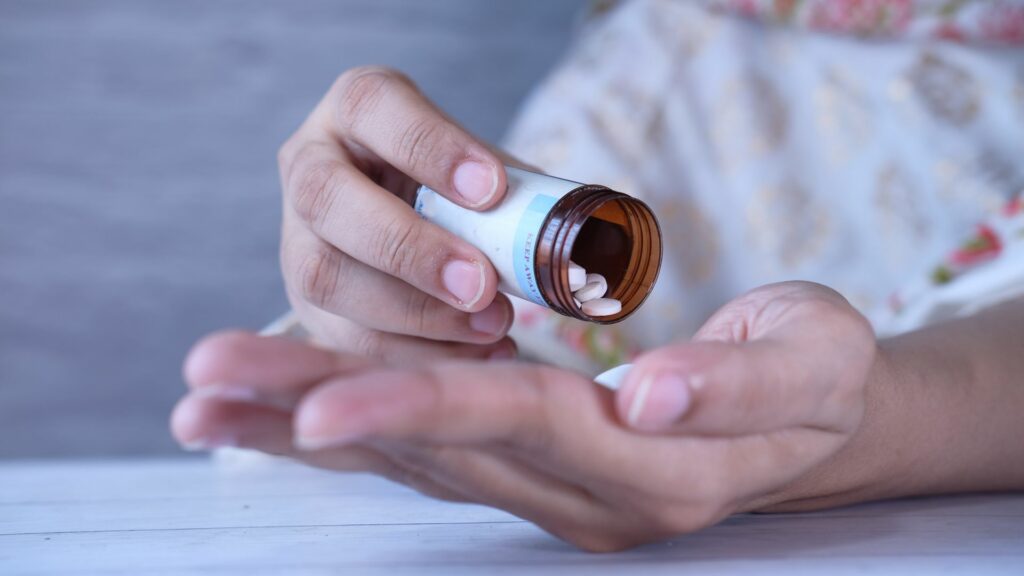Every year, around 35,000 people die in Europe from an infection caused by a bacterium that antibiotics can no longer control. That's a big problem, one that we can take responsibility for ourselves. "We have been in a pandemic of antibiotic resistance for a long time," Professor Samuel Coenen of the University of Antwerp told VRT News. "It is important to stop this rising resistance as soon as possible."
Almost 100 years ago, Alexander Fleming discovered penicillin, the active substance in many antibiotics, a discovery for which he received a Nobel Prize. "In his speech at the time, Fleming already warned about resistance," Professor Coenen said.
The European Centre for Disease Prevention and Control (ECDC) now warns, like Fleming, about antibiotic resistance in a new report. More and more bacteria are adapting to the drug and are becoming resistant to it. That means the infections they cause become untreatable with antibiotics. "We have had a pandemic of resistance since long before Covid-19," said Professor Coenen.
Between 2012 and 2020, the use of antibiotics in general decreased, by 23%. That in itself is good news, but the use of the 'most dangerous' types of antibiotics when it comes to resistance has increased.
Deaths from resistance will keep rising
During the same period, the use of broad-spectrum antibiotics increased by 15%. These are antibiotics that can be widely used, but therefore also have a greater chance of resistance. The use of these has increased, especially in hospitals. The use of reserve antibiotics has doubled in the same period. These are used when doctors see that there is already resistance to other drugs.
Based on its collected figures on antibiotic resistance, the ECDC estimates that 100 people die every day in Europe from such resistance. That amounts to almost 35,000 people a year. That is an impact that can be compared to that of flu, HIV /AIDS and tuberculosis combined.
Other reports predict that that number of annual deaths from resistance will rise to 10 million by 2050. "That's more than cardiovascular disease and more than cancer," said Professor Coenen. These are the most common causes of death at the moment. "These are doomsday scenarios that are before us, but that we have to take very seriously."
However, antibiotics remain necessary as a medicine. "If we want to operate on people, we need active antibiotics,” he added. “For transplants, chemotherapy, lung infections... we need antibiotics."
Use fewer antibiotics
A solution to reduce the rising resistance is obvious: use fewer antibiotics. "In the Netherlands, for example, they only use half of the antibiotics we use in Belgium," said Professor Coenen, who also conducts research into the incorrect prescription of antibiotics. "By using fewer antibiotics, we can slow down and hopefully bring back that process of resistance."
Using fewer antibiotics starts with the prescription of the drug, because without a prescription you cannot obtain it in a pharmacy. That's why the federal government is launching an awareness campaign. "We want people to think more about it, use fewer antibiotics and if they use antibiotics, use the right antibiotics," said Minister of Health Frank Vandenbroucke.
Related News
- Drug resistance kills over 35,000 in Europe each year
- Doctors prescribed fewer antibiotics in first year of pandemic
"We actually learned a lot during the pandemic, such as prevention," Professor Coenen said. "Washing hands, making sure you don't get sick, avoiding contact with sick people or not making other people sick yourself, rolling out vaccinations… these were all very useful. "
Diagnostics is also important, Professor Coenen explained, because antibiotics are only useful for bacteria. Infections such as flu or Covid-19 are caused by viruses. In these cases, treatment with antibiotics makes no sense. "Everyone can do something by being more aware of antibiotics, as a doctor, pharmacist, veterinarian or at home," Coenen concluded. “We can then resort less to using antibiotics.”

